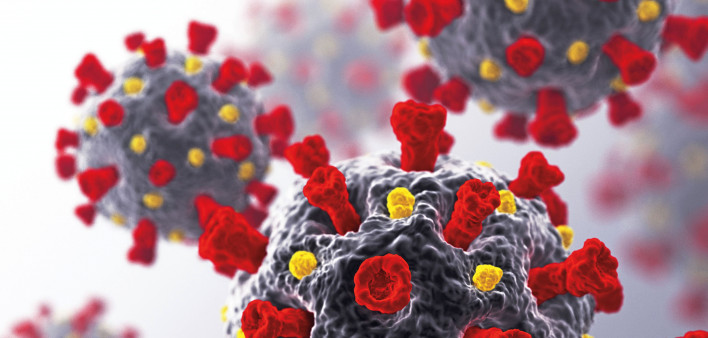The Department of Health and Human Services has updated its interim Guidance for COVID-19 and People with HIV, reflecting the latest research on the intersection of the two pandemics. A key addition is a recommendation that all HIV-positive people should receive COVID-19 vaccines, regardless of their CD4 count or viral load.
It is still unclear whether people living with HIV—many of whom are older and have underlying health conditions—are at greater risk for COVID-19.
Early studies showed that people with HIV were not more likely to test positive for the SARS-CoV-2 coronavirus or to develop severe COVID-19 or die from it. In fact, there were some early hints that some antiretrovirals used for HIV treatment or prevention might offer some protection. But as time went on, other research, including studies from New York City and South Africa, did find that HIV-positive people might have a modestly increased risk for poor outcomes. This particularly applies to those with a low CD4 count or comorbidities.
Advocates have urged that people with HIV be prioritized for COVID-19 vaccines. The Centers for Disease Control and Prevention says HIV-positive people “might be at increased risk” for severe COVID-19, but HIV is not listed among the conditions that are known to put people at increased risk. Currently, state guidelines vary regarding prioritization of people with HIV.
The three vaccines authorized by the Food and Drug Administration (FDA)—from Pfizer-BioNTech, Moderna and Johnson & Johnson—were tested in clinical trials that enrolled a small number of HIV-positive people. While the data are limited, it appears that people with HIV respond well to the vaccines, and no safety concerns were reported.
The HHS guidance includes the following updates:
- The guidance recommends that people with HIV should receive SARS-CoV-2 vaccines regardless of CD4 count or viral load, as the potential benefits outweigh the potential risks.
- The guidance provides information on several drugs currently used to treat COVID-19, including drugs that are currently FDA approved, notably remdesivir (Veklury); commonly used, such as dexamethasone; or available through FDA emergency use authorization, including barcitinib (Olumiant), monoclonal antibodies and convalescent plasma.
- The guidance notes noted that the indications for the use of these drugs should be the same for HIV-positive people as for the general population.
- The guidance includes updated information on the clinical course of COVID-19 in pregnancy, stressing the importance of continuing antiretroviral therapy when pregnant people with HIV are hospitalized for COVID-19.
- The guidance also includes updated information on COVID-19 in children, including a discussion of multisystem inflammatory syndrome in children (MIS-C), stressing the importance of following pediatric antiretroviral treatment guidelines during the pandemic.
In addition, the guidance includes the following recommendations, among others:
- People living with HIV should follow the same COVID-19 prevention measures as the general population, including wearing masks, social distancing, avoiding crowds and washing hands frequently.
- Health care providers should help ensure that people with HIV are able to maintain an adequate supply of antiretrovirals and other medications.
- Telemedicine options, including telephone or video calls, should be considered for routine visits, adherence counseling and to triage patients who are ill.
- People with HIV should not switch their antiretroviral drugs for the purpose of preventing SARS-CoV-2 infection or treating COVID-19.
- If a person with HIV is hospitalized for COVID-19, antiretroviral therapy should be continued, and drug substitutions should be avoided. Clinicians should assess the potential for interactions between HIV meds and COVID-19 treatments.
- When appropriate, clinicians may consider enrolling people with HIV in clinical trials evaluating experimental COVID-19 treatments; HIV-positive people should not be excluded from such trials.
- People with HIV may need additional assistance with food, housing, transportation and childcare during times of crisis and economic upheaval, and clinicians should assess these needs and connect patients with social services and other resources.
- Social distancing and isolation during the COVID-19 pandemic may worsen mental health or substance use issues for some people with HIV, and clinicians should assess and address these concerns.
Click here to read the full Interim Guidance for COVID-19 and Persons with HIV.







1 Comment
1 Comment